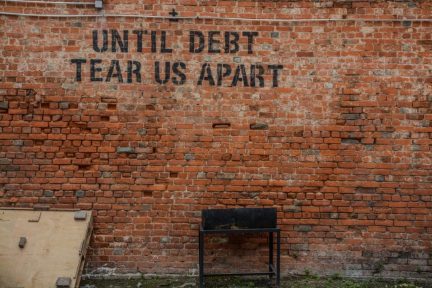CALIFORNIA BRINGING BACK DEBTORS PRISONS FOR HOMELESS
December 10, 2019 in News by RBN Staff
via: BLACKLISTED NEWS
SOURCE: REDOUBT NEWS
BY SHARI DOVALE

Homelessness has been on the rise in California, and has skyrocketed since the Camp and Carr fires devastated the state.
Officials throughout California have grappled with various ways to deal with the ongoing crisis, however, in the Northern California city of Redding, Mayor Julie Winter has sent a state-of-emergency request to Gov. Gavin Newsom, approved by the Redding City Council last week, that requests the right to involuntarily detain people into homeless shelters.
In the drafted letter, Mayor Winter ask the governor for aid in forcing the homeless to adhere to her regulations, but includes “conservatorship until such time as the individual has demonstrated the ability to care for themselves including managing their finances.”
So, if these people are homeless due to the recent devastation, then they could also be forced to any type of makeshift prison, and have their finances taken over by the state. This is called Asset Forfeiture.
Seizure and forfeiture of assets currently represent the proceeds of crimes. However, if this request is approved, the State of California will either be redefining the laws on Asset forfeiture, or they will actually be making homelessness a crime.
It has also been likened to Debtors Prisons or forced workhouses.
In the United States, debtors’ prisons were banned under federal law in 1833. A century and a half later, in 1983, the Supreme Court affirmed that incarcerating indigent debtors was unconstitutional under the Fourteenth Amendment’s Equal Protection clause.
However, if Mayor Winter has her way, these people that were displaced and trying to get back on their feet will be incarcerated and their few remaining assets will be turned over to the government until the government decides to give it back.
“I think it’s important that we step up and come up with some real solutions that provide both a carrot — we want to help you — but there’s also a stick associated with that,” Winter says. “If you don’t want to get help, there are repercussions.”
She told Jefferson Public Radio that the solution “might be a low-security facility, but it’s not a facility you could just leave because you wanted to,” adding that, “You need to get clean, you need to get sober, you need to demonstrate self-sufficiency, and once you do that you’re free to go.”
California has the highest percentage of unsheltered homeless individuals in the country.
Shasta County received $1.6 million in federal funding strictly based on results from their Point-in-Time homeless survey count in 2017.












